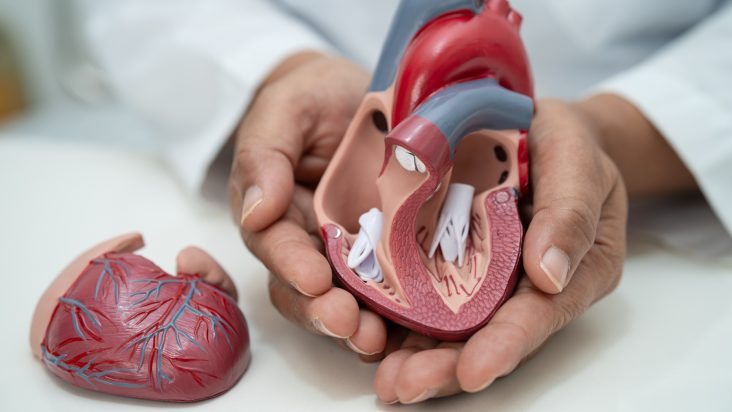When expecting parents visit a clinic for routine scans, the focus is often on counting fingers and toes, measuring growth, and checking organ development. But one of the most important checks—often overlooked—is the heart.
Congenital heart defects (CHDs) are among the most common birth anomalies worldwide. In the UAE, they affect approximately 8 in every 1,000 live births. These structural heart issues range from mild to complex and, in some cases, require early intervention—even before birth.
So how early can congenital heart defects be detected? And what can parents in Dubai, Abu Dhabi, or Al Ain do to prepare?
What Are Congenital Heart Defects?
CHDs are structural problems with the heart’s walls, valves, or blood vessels that develop during pregnancy. Some of the most common types include:
- Ventricular septal defects (holes in the heart)
- Atrial septal defects
- Aortic Coarctation
- Tetralogy of Fallot
- Transposition of the great arteries
- Pulmonary atresia
These conditions can affect how blood flows through the heart and to the rest of the body, sometimes leading to cyanosis (a bluish tint to the skin), fatigue, feeding difficulties, or even heart failure in newborns.
When Can They Be Detected?
Thanks to advances in fetal imaging, many heart defects can be detected as early as 18 to 22 weeks of pregnancy. This is typically done using a fetal echocardiogram—a specialized ultrasound that gives a detailed picture of the developing heart.
Unlike a standard obstetric scan, a fetal echo focuses entirely on the baby’s heart structure, rhythm, and function. It’s completely safe, non-invasive, and gives expecting parents’ critical information that helps with decision-making and care planning.
Learn more about our Fetal Echocardiography service and when it might be recommended.
Who Should Get a Fetal Echocardiogram?
While any expecting parent can opt for a fetal echo, it is strongly recommended if:
- There is a family history of congenital heart disease
- The mother has conditions like diabetes, lupus, or thyroid disease
- An abnormality was seen during a routine anatomy scan
- The baby shows signs of slow growth or abnormal rhythm
- The mother is taking certain medications (like anti-seizure or psychiatric drugs)
In the UAE, where multi-generational family history and consanguineous marriages are common, fetal echocardiography is especially important when genetic conditions are present.
Our team in Dubai, Abu Dhabi, and Al Ain works closely with OB-GYNs and maternal-fetal medicine specialists to ensure early detection and smooth referral pathways.
What Happens If a Defect Is Found?
If a congenital heart defect is detected before birth, it doesn’t always mean surgery is needed right away. Some minor defects may close on their own or require only monitoring.
For moderate to severe conditions, early diagnosis allows:
- Planning for delivery at a specialized hospital with neonatal and cardiac support
- Coordination with a pediatric cardiologist and cardiac surgeon if intervention is needed soon after birth
- Parental counseling, so families understand the condition and know what to expect
This reduces risk, improves outcomes, and gives parents more time to process and prepare emotionally.
We also offer care immediately after birth through our Congenital Heart Defects in Newborns service, which includes newborn evaluation, monitoring, and coordinated referrals when needed.
What About Babies Born Without a Prenatal Diagnosis?
Not all heart defects are caught during pregnancy. Some only become noticeable after birth, especially when the baby shows:
- Poor feeding
- Blue lips or fingertips (cyanosis)
- Breathing difficulties
- Rapid heart rate or sweating during feeds
- Failure to gain weight
In these cases, a pediatrician may refer the newborn to our Pediatric Cardiology team for an urgent echocardiogram and clinical evaluation.
Early signs should never be ignored. Fortunately, KidsHeart has rapid access to imaging tools, including Trans-thoracic Echocardiography and Cardiac MRI for Children, enabling accurate and timely diagnosis.
Intervening Early: What Treatments Are Available?
Treatment depends on the type and severity of the defect. Options may include:
- Monitoring only, for small holes or minor valve abnormalities
- Medication to support heart function and manage symptoms
- Interventional catheter procedures (non-surgical) for certain defects
- Open-heart surgery, in more complex cases
Our Interventional Cardiac Catheterisation service offers minimally invasive treatment for conditions like atrial septal defects or valve narrowing—often with faster recovery times and no large incisions.
Why Early Detection Matters in the UAE
In cities like Abu Dhabi and Dubai, families have access to excellent prenatal and pediatric care—but awareness is key. Many congenital heart defects go undetected until symptoms appear, which can delay treatment.
With growing access to maternal-fetal medicine and pediatric subspecialists, families in the UAE have the opportunity to detect, understand, and act early. This can make the difference between a complex emergency and a planned, controlled treatment journey.
Take the First Step
If you’re an expecting parent, or if your OB-GYN has mentioned anything unusual during scans, don’t wait to explore your options. A simple, safe fetal heart scan can bring clarity and peace of mind.
Our pediatric cardiology specialists at KidsHeart work closely with maternity and neonatal teams across Dubai, Abu Dhabi, and Al Ain to support both early detection and long-term care.
and take the first step in protecting your baby’s heart.

